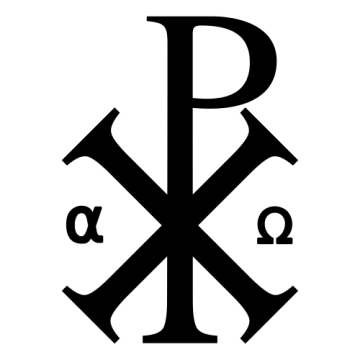I tend to see conservativism and liberalism more like two mutually upholding forces than two isolated viewpoints. Put another way, for me, instead of the two tendencies being like two people sitting across from each other yelling at each other, its more like two people holding a large piece of furniture on both sides. If one of them lets go and stops holding their weight, things are in danger of collapsing. On the other hand, if one side overdoes it and pushes too hard, things are also in danger of collapsing. In that sense when I think of a well-balanced person I don’t think of someone who is „conservative“ or „liberal“, but a person in whom the forces of liberalism and conservativism are balanced and mutually serve each other. For me (and I really mean just for me, because I’m just spelunking in my own intuitions here) conservatism represents structure and reality. Liberalism on the other hand represents freedom and chaos. And I don’t mean by chaos any negative judgement whatsoever because I think human life cannot exist without it.
Conservatism thrives in respecting and taking ultimate reality into account – note that by this I don’t mean merely concrete or scientific facts. In fact, often it is the case that mere scientific facts, or „information“ is a distraction from the most important realities: ultimate fundamental categories of structure built into the human mind such as justice, virtue, etc. which enable us to perceive the real world at all. Liberalism thrives at freeing and making room for the letting be of the subjective – removing the suffocating vice grips of conservative order, to put it in German: um das Seiende sein zu lassen– to let the be-er be rather than making conformance to order a pre-condition to its existence. Liberalism fundamentally recognises the absolute necessity of choice unto conformance with an objective standard – without choice it is not true conformance – so freedom is a precondition of true authenticity.
In this sense, I think that anyone who isn’t plagued with a severe OCD problem, doesn’t try control everyone around them, and doesn’t hate the very idea of subjectivity has liberal elements very alive within them. And anyone who isn’t entirely disengaged from reality on an acid trip of love and wonder (sounds partially amazing) has very real elements of conservativism alive in them. I think both forces are actually intended to serve each other. Conservatism serves liberalism by helping it to recognise that while the subjective and the free are good, they must take place within a pre-existing and defined sphere of order – because if freedom has no reference point against which it can define itself it disappears into literal nonsense.
Whereas liberalism both insists upon the fundamental necessity of freedom as a precondition to true order and also points out many areas in which conservatism’s putative order is really a subjective manifestation or artifact of preference which has no connection to the ultimate principles of order must insisted upon by the conservative „Geist“. I believe Jesus represented a perfect balance of liberalism and conservatism. In fact given the circumstances in which he lived, he often voiced a liberal role among the Pharisees, who not only deprived people of authenticity and freedom, but also baked their own subjective preferences and inventions into the law and preached them as being fundamentally connected to God’s will. „The Sabbath was made for man – not man for the Sabbath“.
Yet I think if he came in, Germany, say, he would have many very conservative things to say: „Go and sin no more.“ Fundamentally I think the precondition of a well-formed soul is a balance of authentic, free – even passionate – submission to a subjectively affirmed and recognised order. People who achieve this become beautiful souls, if not in their very being manifesting beauty itself. Because beauty itself is a perfect balance of raw chaos and order.
